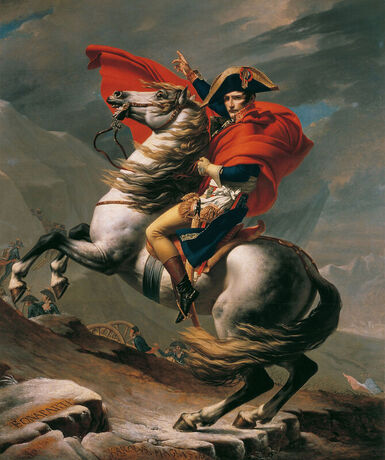|
After a few frenzied weeks of activity, with long work hours and enthusiastic online workouts, lockdown has slowly ground me down to a dull drag of inertia, where I now question the point of changing from my night-time pjs to my day-time pjs. This is not an uncommon response to the confinement of lockdown being layered onto the fearful uncertainty of a global pandemic, and is triggering a further epidemic of languishing. As many have exhausted their emotional reserves, they are now exhausted from doing everything at once or nothing much at all. Many articles have been written on lockdown fatigue with some ideas to mitigate it, but given your energy levels, I will save you time and let you know which of these approaches may suit your personality better. What is it about our compulsory ensconcement that makes some more tired than others? How does being trapped in our houses in the midst of the strange movie we have woken up in, impact on different personality types? The personality dimension most aligned with energy is the introverted/extraverted scale with interaction replenishing the reserves of the extraverted and time alone to be more restorative for the introverted. Obviously, we all need human contact for many reasons, but the level which extroverts need it to boost their energy levels is higher. This certainly bears out in my bubble where although we are all fed up with lockdown, I (as the only extravert) am the one who appears to have had the most dramatic shift in energy levels. There does seem to be some early research which supports this. The best advice for desperately tired extraverts is to be deliberate in finding ways to interact. Be the one that does the supermarket shopping, say hello to everyone you see on your walks, organise Zoom quiz nights and drinks, call everyone in your favourites list (or just the first 20), or cajole the introverts who live with you to play a board game or hang and chat. Looking at how lockdown bears upon the differing vulnerabilities of the temperaments can give us further insight into how we can better cope with our malaise. Popularised by Dr. David Keirsey, the temperament model is a grouping with in the Myers-Briggs system aligning typical behavioural patterns with the classic historic temperaments model (sanguine, choleric, melancholic, and phlegmatic). Keirsey has labelled these groupings Artisan (SP), Guardian (SJ) Idealist (NF) and Rational (NT). Typically (SP) Artisans are easy-going, practical and pragmatic. The physical confinement of lockdown is particularly tough on them, as they are the most compelled by physical movement and prone to feeling trapped when confined or restricted. Combine this with an appetite for fresh air and a distaste for rules, SPs are itching to escape. The best remedies for SPs are to get in the sunshine, ride, run or walk somewhere new, or make something creative or practical. Movement is vital. Touch is also helpful, so SPs would be wise to use their charm to talk someone in their bubble into giving them a massage. Without sensory indulgences, SPs may be prone to overeating or drinking in their attempt to soothe themselves, or may break the rules in their frustration. Without a let up, SP may become unnaturally suspicious of what is really going on. (SJ) Guardians are usually steady, responsible and hardworking. They respect authority and follow the rules, liking the security of routine and order. The disruption to their normal work, income and daily routine during lockdown is a big challenge to this group. Without the end in sight, Guardians become negative and worry; about money, the future, about those they take care of and about others breaking the rules. Their normally steady progress can slow to a crawl, and their mood will darken to match. To prevent this decline, SJs are best to stick to a strict routine for exercise, work and sleep and replicate their ‘normal’ work day as closely as possible. This includes creating a business-like office at home, dressing professionally, and possibly even taking a quick walk prior to going to ‘work’ to replicate the morning commute. Momentum and progress is what energises SJs, so if they do grind to a halt, SJs find it very difficult to start up again. Breaking down tasks into manageable steps with attainable goals and clear rewards can help get them started again. Exercise with its physical benefits and ease of tracking progress (such as counting steps or press-ups) can be utilised to get them moving again. Other hands-on activities, particularly those that produce something, like baking or gardening, can also reinvigorate the SJ. The (NT) Rational is strong, ingenious and independent. They are driven to improve things around them, to gain understanding and to maintain control. The practical frustrations of lockdown do not drain them as much as their awareness that they are not in control of their lives, and by the difficulty of abiding by rules that they cannot see a rational basis for. NTs will express their frustration with ongoing criticism and complaint. Focussing their problem-solving strengths to become part of the solution: to research, develop strategies, voice their solutions and initiate healthy debate, will keep their energy levels up and help to mobilise support in a positive direction. NTs do best to make a plan, make themselves heard, and make changes. Alternatively, embarking on new learning, exploring a new ideology or focusing on a design project can shake them out of lethargy. If the NT is unable to utilise their strengths to a greater purpose, their ongoing criticism may flip into an uncharacteristic emotional response, where the NT becomes self-pitying, needy and concerned about their relationships. The (NF) Idealist is passionate and enthusiastic, empathetic and driven to make a difference in people’s lives. For them it is the lack of connection, particularly if coupled with an increase in practical demands (such as juggling work, family and childcare) that drains them in lockdown. It is important that they feel they are able to continue to pursue their purpose, or they may become overwhelmed and feel a desperate need to escape disappointing reality. If the NF is not able to maintain the level of connection to their people that they need to energise them, they can gain purpose by re-examining and reaffirming the meaning in their life. Focusing on the whys of life through meditation and journaling, or making a safe retreat into books, movies or music, is likely to result in fewer regrets than an escape into alcohol or online shopping. For the Idealist to learn and practise mindfulness and relaxation techniques, such as yoga or deep-breathing exercises, will help them become grounded, reduce their tendency to become dramatic, and enable them to regain their equilibrium. Flaming June - Sir Frederic Leighton
0 Comments
I hope you are all safe and well and managing to keep on top of the stress of the emergence of Delta in the community and the ensuing lockdown. All of us are impacted by the uncertainty, the inability to see loved ones and the loss of income that this has caused. There are other stressors which are individual to each type, and it is wise to be aware of these while confined with the same people over a number of weeks. Just as we subconsciously assume others will (should) react the way we do, we also have the expectation that they will be helped, when under stress, by the things that help us. This is unlikely to be the case. Different personality types exhibit stress differently, and need a completely different approach to help them regain their equilibrium. So telling your partner to go for a run when they are stressed because it works for you, may not be helpful (and may well get you into trouble). Because we are different personalities, we act differently. Under stress I don't act like you, I don't even act like me! Most people when first exposed to psychological type are fascinated to read their personality description and see that it describes so accurately how they normally act. But under stress, we don't act normal. Under stress, you will not be the balanced and effective version of your personality type that you usually are. We are typically triggered into a stress reaction by something peculiar to our personality type, something which undermines our dominant function. Our first response is to scramble for that function and exaggerate it. After all, if this behaviour has worked my entire life, surely more of it will work better? If you are an extravert - this will happen in front of everyone (how embarrassing). If you are an introvert it will all happen internally - less embarrassing but equally ineffective. It may also mean that the extraverts around you have no idea of how you are feeling and so will not think to moderate their behaviour in a way that could help you. You may be a deep and visionary person, self-disciplined, warm and gracious, known for your insightful input. But at times, especially when feeling stuck and unable to move forward, you shut down entirely, imagining the worst and just wanting to escape. Worse still, if things don't improve you may just reach for that bottle or go crazy with the online shopping. You might be a great organiser, the one who takes on all of the responsibility, sees what needs to be done and arranges everyone to get on board, do their job and complete the goal. But when everyone is being emotional and no one is pulling their weight, you start to become forgetful and find yourself snapping critically. If you are unable to gain control, you might just find yourself hiding away, full of self-pity and feeling needy - this is just not you! Have an open conversation with those in your bubble about how you are feeling, what behaviours stress you and what helps when you are losing it. Listen to them and try to adapt for them also. This is a time for grace. The Scream - Edvard Munch
Intuitively, it seems that an effective team would be one with a good balance of different personality types, and there is quite a bit of evidence that shows this to be the case. Probably the best known of the research is a series of studies by DJ Wilde at Stanford University, which showed that design teams deliberately made up of a diverse range of personality types were three times more likely to win awards than self-select teams. Belbin also has published research which highlights the complement to that - the ineffectiveness of teams with a lack of psychological diversity. In the real world however, teams are frequently skewed, with the predominance of personalities actually reflecting the type of the hirer (we do so appreciate our own qualities!). Although a bit of weighting in one direction is to be expected in specialist industries, this is not in fact a formula for a successful or an effective team. Further to this, in the case where a diverse team has been selected, the reality is that the individuals do not find communication inherently easy. They need time or intervention to establish communication and work cooperatively. Foundational to ensuring a diverse team is effective, is for all team members to learn to appreciate the contributions of the others. Knowing that someone else can do something you can't, is a great basis for respect and this respect paves the way for choosing to hear the other. What we may consider to be an irritating behaviour associated with a personality difference, is easier to accept when you value the contribution that is the outcome of that different perspective. Without this underlying respect, the individuals who are 'different' do not feel accepted, and spend a lot of mental energy in self-protection. Anyone who feels they need to defend their every move will not only be less productive, but will be less able (and less willing) to adapt their approach for the sake of someone else. So all of the communication training in the world will be wasted if the people in your team do not feel firstly accepted for who they are. It is within an environment of acceptance and respect, that people have the confidence to choose to step a bit outside themselves and see a different perspective or try another way. So a productive team is one that is deliberately chosen for its diverse personalities, respected for their differences and taught to value each other and communicate effectively. You can email me HERE if you would like to discuss team building. The Last Supper — Leonardo Da Vinci
Feeling is my hero. I show feeling - it's best side and it's worst. I walk into a room and feel everyone's mood, I know how to make people feel welcome and comfortable, I feel the impact of harsh treatment on any I consider mine. I am compelled to do what I can to make life better for those around me, and cannot function in critical surroundings. Of all of my personality preferences, the one that I am most directed by, good and bad, is feeling. Of all of your preferences, one is the hero. This is called your dominant. It is the first function to develop, the strongest function throughout your life, and the key to feeling and acting like you. Your dominant will be one of the two center letters of your 4 letter type, which are the letters that indicate your mental functions. The mental functions describe how you gather information (S or N) and how you make decisions (T or F). So the mental functions are Sensing, Intuition, Thinking and Feeling - two of these will be in your 4 letter type, and one of those will be your dominant. The dominant function is the driver of your type and the side of you that feels most safe and most right. It is also the function that you have the most control over and the one that you run to when stressed or uncertain. Although the ideal is to develop all of the mental functions over the course of life, your dominant will always be your favourite. If you are an extravert, the dominant function will be extraverted, so you use it on the outside to deal with people and the world, and people see it. If you are an introvert then the dominant function is introverted, so you use it on the inside to deal with your thoughts and ideas, so people do not see it. This why it takes longer to get to know an introvert - the side they show you is not their most important or well developed side, they display their auxiliary function to the world - their back up side. Just to complicate things, any function that is extraverted, typically looks and acts different from the same function that is introverted. So your feeling, may 'look' different to mine (if your feeling is introverted) and also may not be as strong as mine if your feeling is not your dominant - and of course this relates to each of the other mental functions as well. It is important to know the dominant function of those close to you or those you deal with regularly, as the dominant function is their most trusted function and the one that is the key to their type. Napoleon Crossing the Alps — Jacques-Louis David
It is affirming to discover your personality type and recognise your strengths and your perspective in 4 letters. How fabulous to read the description of your type and feel understood - or at least to feel you are not alone. Being a great example of your type however, is not the end game. And although we prefer the functions that give rise to those 4 letters, life does not allow us to sit too comfortably in our own little box. Jung considered that maturity was being a good example of our personality type but stepping outside of that type when appropriate. Your type is your safe place, where you are in control and energised, but life, family, work and maturity requires more than just one approach to life. Reality has a tendency to keep us slightly off balance, so that as we face challenges, we also are compelled to grow. Growth involves choosing to react differently to someone to enable them to hear you, and making the effort to address your weaker areas. Have a think about how you have changed since early adulthood. Have you become less extreme in one or more of your preferences? Are you 'close to the line' on one of the scales? This is an indication that you are maturing and are able to step outside of that box when the situation calls for it. It is likely that you now could sit quite happily in two of the personality type boxes, which one do you think you are able to function out of nearly as well as your true type? So your type remains the same throughout life, but you develop the capacity to use the functions that are not in your 4 letters of type, and you get better at those behaviours with practice. That is how maturity occurs. This is also the difference between a 50 year old who still thinks their way is the only way, and a 50 year old who is balanced and has 'mellowed'. Escaping Criticism - Pere Borrell del Caso
I have a great mirror in my bathroom. I’m not sure if it’s the lighting, the positioning, or a combination of the two—but it serves me back a flattering reflection that makes my day. Seeing the best version of myself makes me feel like I can do anything. The concept of ‘mirroring’ is used in psychology to describe how people imitate the gestures, speech patterns or attitudes of others in conversation—to increase connection and improve how they are received. It is usually an unconscious response, but can also be learned as a technique. Here’s my version: If you’re looking to enhance your connection with someone, pay attention to their tone and manner, and reflect this back to them in the most flattering way possible. We may respond unhelpfully when we feel someone is a little too much—a little too emotional or somewhat too direct, for example. On these occasions, it’s likely that we’ve tried to provide a balance rather than a reflection. This never works. If someone is being emotional, we may become more cooler and more direct, in an attempt to help them 'pull themselves together' for instance. If this sounds familiar, try instead to display a bit of feeling yourself, in the form of grace and empathy. That is what they need to restore their equilibrium. If someone is being abrupt and critical, instead of reacting emotionally or objecting that their tone is distressing, be more analytical yourself. Present the same function in its mature form: be clear, calm and focus on solving the problem. That is what they need to restore their equilibrium. Whatever the trait that someone is displaying, play that back to them in its most flattering and mature version. This will calm the situation, enable that person to be the best version of themselves, and might save you an argument. Be like my mirror. Narcissus by Caravaggio
|
AuthorJacqueline has spent a good few years encouraging people to be the strongest and most gracious version of themselves. Archives
October 2021
Categories |
® Myers-Briggs Type Indicator & MBTI® are trademarks or registered trademarks of the Myers-Briggs Type Indicator Trust in the United States and other countries.
TM Strong Interest Inventory is a registered trademark of Consulting Psychologists Press, inc.
TM Strong Interest Inventory is a registered trademark of Consulting Psychologists Press, inc.







 RSS Feed
RSS Feed